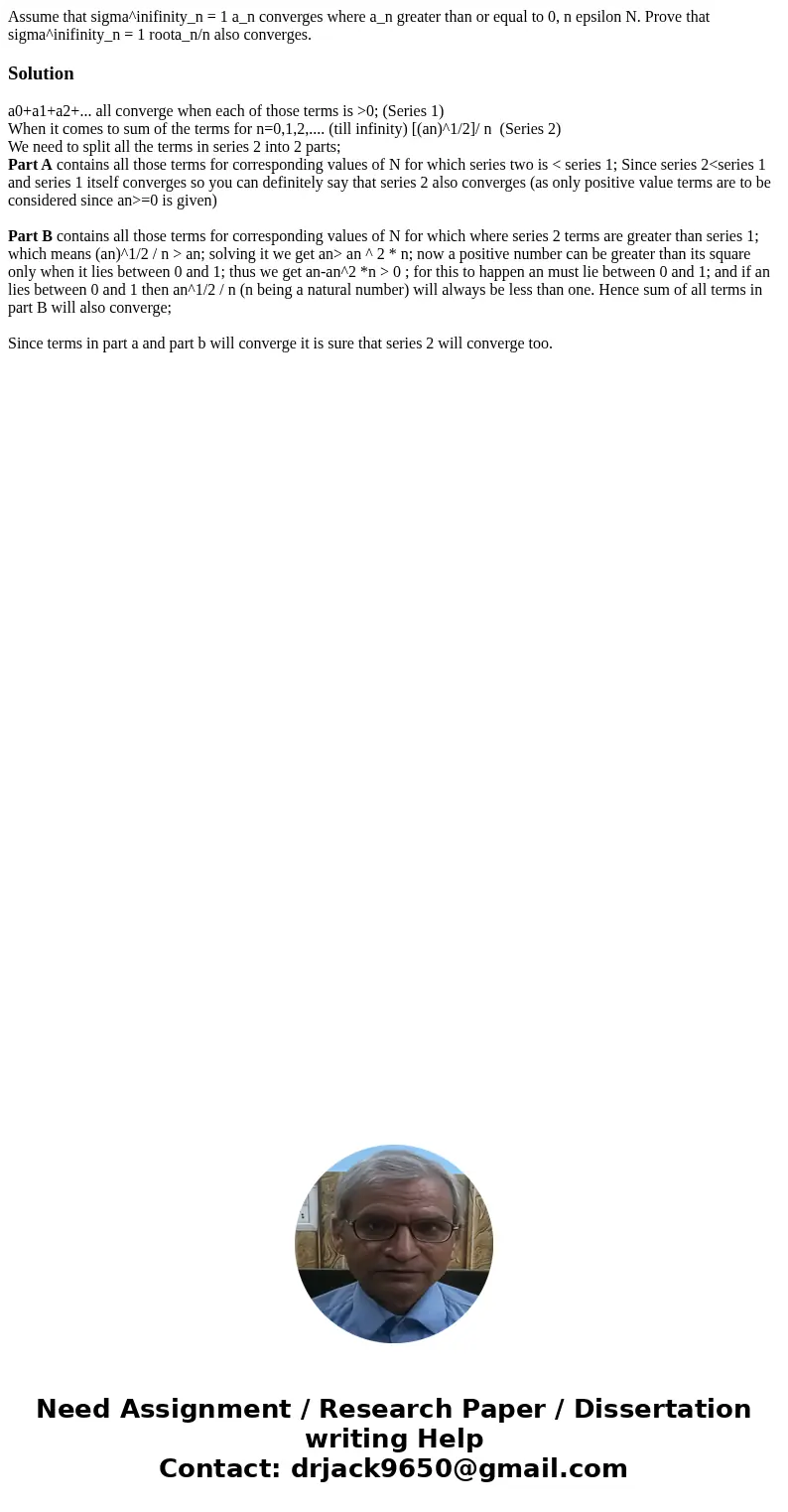Assume that sigmainifinityn 1 an converges where an greater
Solution
a0+a1+a2+... all converge when each of those terms is >0; (Series 1)
When it comes to sum of the terms for n=0,1,2,.... (till infinity) [(an)^1/2]/ n (Series 2)
We need to split all the terms in series 2 into 2 parts;
Part A contains all those terms for corresponding values of N for which series two is < series 1; Since series 2<series 1 and series 1 itself converges so you can definitely say that series 2 also converges (as only positive value terms are to be considered since an>=0 is given)
Part B contains all those terms for corresponding values of N for which where series 2 terms are greater than series 1; which means (an)^1/2 / n > an; solving it we get an> an ^ 2 * n; now a positive number can be greater than its square only when it lies between 0 and 1; thus we get an-an^2 *n > 0 ; for this to happen an must lie between 0 and 1; and if an lies between 0 and 1 then an^1/2 / n (n being a natural number) will always be less than one. Hence sum of all terms in part B will also converge;
Since terms in part a and part b will converge it is sure that series 2 will converge too.

 Homework Sourse
Homework Sourse